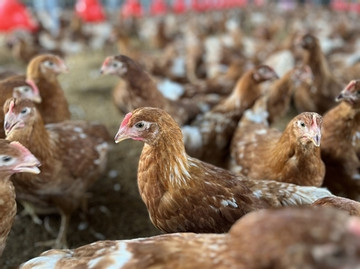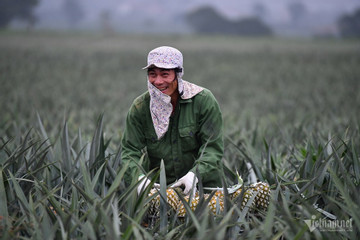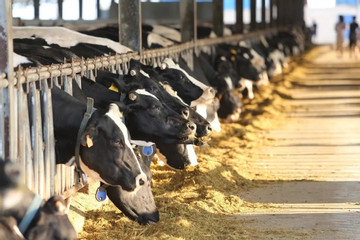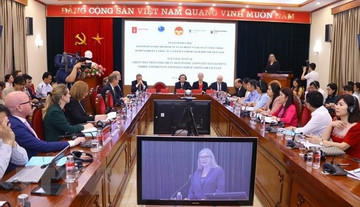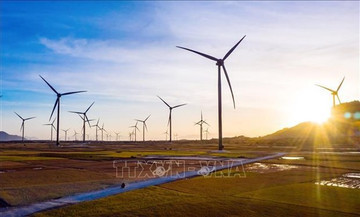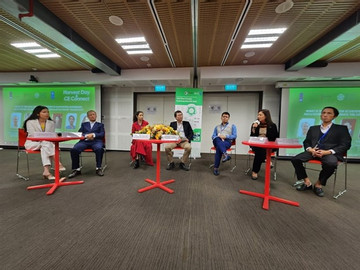- © Copyright of Vietnamnet Global.
- Tel: 024 3772 7988 Fax: (024) 37722734
- Email: [email protected]
circular economy
Update news circular economy
Vietnam's battle against plastic waste gains momentum with innovative solutions
Highlighting the importance of collective action, the “Plastic Circular Innovation Solutions 2024” competition brings innovative ideas that could reshape Vietnam's environmental and economic landscape.
Vietnam promoting circular economy through waste, packaging recycling
Sorting, collecting, and recycling packaging is one of the solutions that not only helps regenerate products but also effectively reduces environmental pollution.
Vietnam needs drastic measures to promote circular economy
Vietnam needs to drastically raise measures to promote the development of circular economy in order to take up opportunities for accelerating socio-economic growth and promoting sustainable development.
Vietnamese farmers could earn more by rethinking how they handle straw
In Vietnam, millions of tons of valuable straw are being wasted annually due to the practice of burying it in fields, a habit that not only increases greenhouse gas emissions but also leads to missed economic opportunities.
Vietnamese innovation: Biochar and wood vinegar production from durian shells
As the area under durian cultivation expands in Vietnam, innovative methods are being developed to convert the large quantities of discarded durian shells into biochar and wood vinegar, reducing environmental impact and boosting farmers’ incomes.
Vietnam promotes circular economy in waste recycling
Many businesses in Vietnam have developed circular economy models, focusing on waste-to-energy and producing building materials from the ash and slag of thermal power plants.
Circular economy plays important role in net-zero plan
Promoting a circular economy that contributes to the country's net-zero commitment will bring many benefits to Vietnam and businesses.
Vietnamese farmers go green, circular economy takes shape
Vietnamese farmers understand that green agriculture and sustainable farming is a must to maintain their presence in the world market.
Circular economy: A solution for sustainable development
Transitioning to a circular economy presents a significant opportunity for sustainable development, aiming at not only meeting economic and social goals but also addressing climate change challenges.
Companies embrace cage-free eggs to meet consumer demand
To embrace the circular economy and meet consumer demand, many companies in Viet Nam have started using cage-free eggs in their production, experts have said.
Farmers use agricultural waste, save tens of billions of VND a year
The circular economy and organic agriculture are being adopted by many enterprises. Agricultural waste is now being re-used in farming.
Animal husbandry sector prospers, but byproducts go to waste
The animal husbandry industry, valued at $23.7 billion, is still struggling with the question of the circular economy. Its by-products, 75 million tons per annum, are being wasted.
Nordic countries share green solutions for circular economy with Vietnam
A scientific seminar titled “Green solutions for circular economy and waste management: Nordic experiences and policy implications for Vietnam” was held in Hanoi on March 23.
Vietnam suggested to join European Circular Economy Stakeholder Platform
Vietnam can take part in the European Circular Economy Stakeholder Platform (ECESP) to make use of Europe’s initiatives and experience in this regard, according to ECESP Vice President Cillian Lohan.
Vietnam needs a policy corridor to promote circular economy
While the circular economy has become a trend in developed economies, it could also be implemented to develop Vietnam if there is an appropriate legal and policy corridor, said experts.
Circular economy is an inevitable path ahead: UNDP
The transition towards a circular economy (CE) offers 4.5 trillion USD in economic opportunities globally by reducing waste, stimulating innovation, and creating employment, according to Ramla Khalidi, Resident Representative of UNDP in Vietnam.
Exporters face tax unless they cut greenhouse gas emissions
Exports to the EU market will become more expensive unless enterprises implement greenhouse gas emission cuts. This will affect the competitiveness of many Vietnamese export companies.
Cashew nut shells pay dirt for green firms
Cashew nuts shells were once believed to be good for nothing and regarded as waste, but the circular economy model has changed everything, turning the waste into big cash spinner.
Vietnam wastes 160 tons of agricultural by-products a year
If 1 million by-products in the seafood industry were processed into valuable products, they would bring in US$4-5 billion. Vietnam produces 160 million tons of by-products a year.
Businesses get set for circular economy
Vietnam’s rapid economic growth has caused environmental challenges which have forced the nation to focus on fostering the development of a circular economy with less pollution and reused and recycled products.









